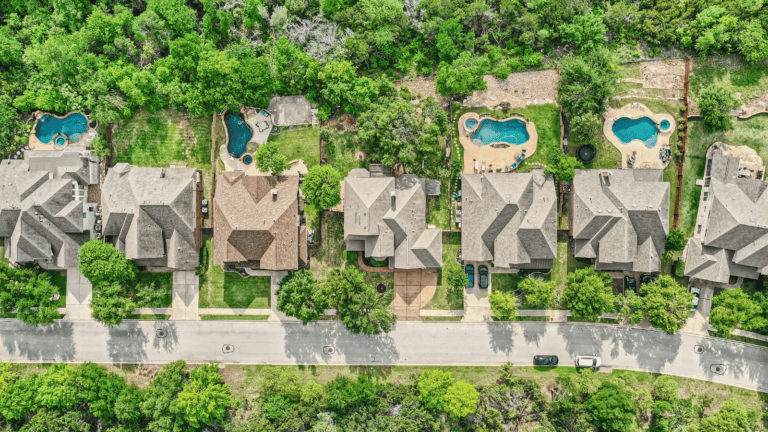Las Vegas may have earned the moniker “sin city” honestly, but the jewel of southern Nevada is rapidly outgrowing it. Las Vegas has low property taxes and no income tax. There is a high tax rate on the hospitality and gambling industries. As a result, the metro area’s coffers are plentiful. For example, roads and infrastructure are well funded at minimal cost to residents. The sunny skies, thriving arts community, easy access to outdoor recreation, light traffic, and rapidly diversifying economy have drawn residents from across the nation.
Las Vegas is a growing city that appeals to artists, tech professionals, and young families. Its affordability is attractive, and it’s a great place to invest in real estate. This 2022 market trend forecast looks at the factors influencing desirability and growth. By the end of this article, you’ll have a picture of the real estate market in Las Vegas
Median Home Price
The Las Vegas unemployment rate in December 2021 was 6% and it’s continuing to move in the right direction. The hospitality industry is reviving in the wake of the pandemic. But Las Vegas isn’t just casinos, shops, hotels, and high-end restaurants anymore. Entrepreneurs are drawn by the low to non-existent taxes and the growing tech scene. This doesn’t include the number of people who work remotely. These people may find Las Vegas to be an easy flight from Los Angeles, San Francisco, or Seattle. The National Association of Realtors calculates the median home price in Las Vegas at $397,000; that’s the most affordable of the west coast metros. Los Angeles comes in at $801,000; Seattle is at a slightly more affordable $698,000, and the Bay Area is well above $1,000,000.
Population and Growth
Las Vegas is estimated to be the second fastest-growing city in the US; the population is anticipated to surge by 42% between now and 2060. While The Strip has always been a hub for tourism, the areas beyond have grown into vibrant neighborhoods with shopping and culture for permanent residents. Las Vegas has a university, three professional sports teams, and a host of museums and cultural events.
Housing Inventory
Las Vegas housing inventory is at an historic low, less than half of what it was during the summer of 2020. Inventory has been declining steadily which indicates a sellers-market and moves home prices upward. Another indicator of a hot market is days-on-market and median days on market in Las Vegas is below 40 days. This is up from a low of 24 days-on-market in May of 2021, but still indicates a rapidly moving housing market where demand outstrips supply.
Before the pandemic days-on-market were highest in January of each year, responding to a typically seasonal real estate market with November to March representing the slowest months. Other than an anomaly in May 2020, explained by the start of the Covid-19 pandemic, the Las Vegas real estate market follows a rhythmic pattern that leads analysts to believe the trend of low inventory and rapid selling time will continue, and possibly increase.
There are around 4,000 active listings in Las Vegas. This limited supply indicates that the trend of a competitive real estate market will continue into Q2 and Q3.
Housing Prices and Mortgage Rates
The median home price in the Las Vegas metro area is climbing. The Zillow Home Value Index for the area shows an increase of 28.6% Zillow’s seasonally adjusted median home price comes in at $399,108, up from last February’s median of $313,000. Zillow pegs the national increase at $19.9%, so it’s safe to say that while homes are still affordable in Las Vegas, home values are on the rise.
Mortgage rates rose in early 2022, following an extreme low. Signs indicate that rates are stabilizing. While current rates may feel elevated and many people have fears about inflation, rates in the 3-5% range have been typical since the early 2000’s and are a far cry from the skyrocketing rates of the 1980’s. Current rates are appealing not only for first-time buyers, but also investors and those looking to purchase second homes or recreational property. According to Freddie Mac, at the end of February, 2022, mortgage rates are as follows:
3.89% for a 30-year fixed
3.14% for a 15-year fixed
Overall, rates are favorable and homes in Las Vegas remain affordable, but are edging upwards.
Investment Properties and Las Vegas Rental Market
Las Vegas is a great place to be an investor whether you’re a contractor looking to flip a deal or a landlord planning on growing your portfolio of properties. An upward trending market is essential for investors looking to renovate and resell. Current challenges include an uncertain supply chain and fluctuating material costs. The lack of inventory in the Las Vegas real estate market indicates that rising property values can help investors weather uncertainties around renovation costs and timelines.
The low property taxes in Nevada, along with the growing economy, make Las Vegas an ideal place to own rental properties. While there are challenges to short-term rentals (under 30 days), the residential rental market is thriving and there is high demand. Rental prices start around $1,700/mo and go upward of the $7,000/mo mark for luxury homes in gated communities.
The rise of the work-from-home movement has also brought an increase of renters looking for 3-6 month rentals in desirable locations. The low cost of living and easy access to entertainment and outdoor recreation makes Las Vegas one of those desirable locations. Southern Nevada is quickly joining the likes of Palm Springs as an appealing winter home for snowbirds and digital nomads.
Real Estate Prices
The 2022 forecast for the real estate market in Las Vegas is bright. The market looks to continue favoring sellers, as indicated by the low inventory and high buyer demand. As major metropolitan areas like San Francisco, Seattle, San Diego, and Los Angeles continue to be difficult for average buyers to break into, prospective buyers seek homes elsewhere and Las Vegas has much to offer.
The advent of the work-from-home movement and the digital nomad have driven prospective buyers to relocate based on appeal, rather than proximity to employment. Although we’ve yet to see the measurable effects of this change, places like Las Vegas are likely to benefit.







